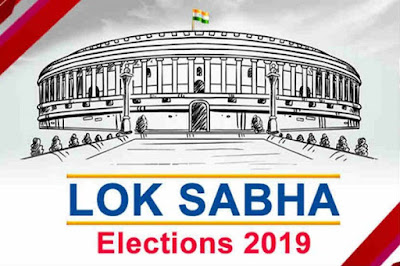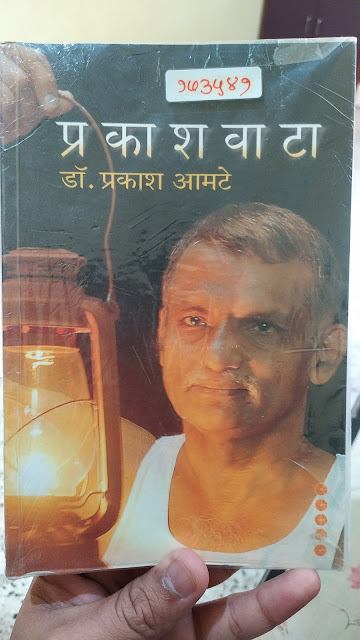Know the Election Machinery in India
The Indian General Election for Loksabha is declared on 10 March 2019 and it is scheduled to be held in seven phases from 11 April to 19 May 2019 to constitute the 17th Lok Sabha. Legislative Assembly elections in the states of Andhra Pradesh, Arunachal Pradesh, Odisha and Sikkim will be held simultaneously with the general election.
But do you know who conducts these elections?
Some of you can give right answer but do you know how they operate?
The Election Commission of India administers elections to the Lok Sabha and Rajya Sabha and state Legislative Assemblies and Legislative Council in India, and the offices of the President and Vice President in the country.
Election Commission of India is an autonomous constitutional authority responsible for administering election processes in India. The Election Commission operates under the authority of Constitution per Article 324, and subsequently enacted Representation of the People Act. Commission has powers under the Constitution, to act in an appropriate manner when the enacted laws make insufficient provisions to deal with a given situation in the conduct of an election. Being a constitutional authority, Election Commission is amongst the few institutions which function with both autonomy and freedom, along with the country’s higher judiciary, the Union Public Service Commission and the Comptroller and Auditor General of India.
Election schedule was announced on 10 March 2019, and with it the Model Code of Conduct came into force. Model Code of Conduct is a set of guidelines issued by the Election Commission of India for conduct of political parties and candidates during elections mainly with respect to speeches, polling day, polling booths, portfolios, election manifestos, processions and general conduct. These set of norms has been evolved with the consensus of political parties who have consented to abide by the principles embodied in the said code in its letter and spirit.
The Model Code of Conduct comes into force for the need of ensuring free and fair elections. Its main purpose is to ensure that ruling parties, at the Centre and in the States, do not misuse their position of advantage to gain an unfair edge. It is designed to avert practices which are deemed corrupt under model code of conduct . For example, politicians should not make hate speeches, putting one community against another or make promises about new projects that may sway a voter.
As mentioned above election is scheduled to be held in seven phases, with counting starting on 23 May. The polling for the Anantanag constituency in the state of Jammu and Kashmir will be held in three phases, the first of its kind.
Election Machinery
- About
- Under Article 324(1) of the Constitution of India, the Election Commission of India, interalia, is vested with the power of superintendence, direction and control of conducting the elections to the offices of the President and Vice-President of India. The same Article 324 also vests in the Commission the powers of superintendence, direction and control of the elections to both Houses of Parliament.
- Article 324 (1) also vests in the Commission the powers of superintendence, direction and control of the elections to both Houses of the State Legislature. Detailed provisions are made under the Representation of the People Act, 1951 and the rules made thereunder.
- The State Election Commissions constituted under the Constitution (Seventy-third and Seventy-fourth) Amendments Act, 1992 for each State / Union Territory. They are independent of the Election Commission of India.
- The State Election Commissions are vested with the powers of conduct of elections to the Corporations, Muncipalities, Zilla Parishads, District Panchayats, Panchayat Samitis, Gram Panchayats and other local bodies.
- Appointments
- Under Article 324(2) of the Constitution of India, the President of India is empowered to appoint the Chief Election Commissioner and the Election Commissioners.
- Article 324(2) also empowers the President of India to fix from time to time the number of Election Commissioners other than the Chief Election Commissioner. Status of Chief Election Commissioner and the Election Commissioners in terms of salaries and allowances etc is equivalent to Supreme Court Judges. The Chief Election Commissioner and the two Election Commissioners draw salaries and allowances at par with those of the Judges of the Supreme Court of India as provided for by the Chief Election Commissioner and other Election Commissioners (Conditions of Service) Rules, 1992.
- Chief Electoral Officer(CEO)
- The Chief Electoral Officer(CEO) of a State/ Union Territory is authorised to supervise the election work in the State/Union Territory subject to the overall superintendence, direction and control of the Election Commission.
- The Election Commission of India nominates or designates an Officer of the Government of the State/Union Territory as the Chief Electoral Officer in consultation with that State Government/Union Territory Administration.
- Electoral Registration Officer(ERO)
- The Electoral Registration Officer(ERO) is responsible for the preparation of electoral rolls for a parliamentary / assembly constituency. The Election Commission of India, in consultation with the State / UT Government, appoints an Officer of the Government or the Local Authorities as the Electoral Registration Officer.
- In addition, the Election Commission of India also appoints one or more Assistant Electoral Registration Officers to assist the Electoral Registration Officer in the performance of his functions in the matter of preparation / revision of electoral rolls.
- District Election Officer(DEO)
- Subject to the superintendence, direction and control of the Chief Electoral Officer, the District Election Officer(DEO) supervises the election work of a district.
- The Election Commission of India nominates or designates an Officer of the State Government as the District Election Officer in consultation with the State Government.
- Returning Officer(RO)
- The Returning Officer(RO) of a parliamentary or assembly constituency is responsible for the conduct of elections in the parliamentary or assembly constituency concerned.
- The Election Commission of India nominates or designates an officer of the Government or a local authority as the Returning Officer for each of the assembly and parliamentary constituencies in consultation with the State Government/Union Territory Administration.
- In addition, the Election Commission of India also appoints one or more Assistant Returning Officers for each of the assembly and parliamentary constituencies to assist the Returning Officer in the performance of his functions in connection with the conduct of elections.
- Presiding Officer(PO)
- The Presiding Officer(PO) with the assistance of polling officers conducts the poll at a polling station. The District Election Officer appoints the Presiding Officers and the Polling Officers. In the case of Union Territories, such appointments are made by the Returning Officers.
Before going for voting verify your name is present in Electoral List by visiting https://electoralsearch.in/, a National Voters' Services Portal, today itself.
A new Android-based mobile app called ‘Voter Helpline’ is also launched by Commission which provides convenience to all citizens for finding their names in the electoral roll, submitting online forms, checking the status of the application, filing complaints and receiving the reply on their mobile app. All forms, results, candidate affidavits, press notes, voter awareness and important instructions are available through the mobile app.
Commission has also provided Voter Helpline number 1950.
As many of you will be first time voters, so understand process followed at Polling Station,
- You must carry your Voter ID card proofs to a polling booth. If you are not able to produce the Voter ID shall produce one of the following alternative photo identity documents for establishing their identity. The list of eleven documents is:
- Passport,
- Driving License,
- Service Identity Cards with photograph issued to employees by Central/State Govt./PSUs/Public Limited Companies,
- Passbooks with photograph issued by Bank/Post Office,
- PAN Card,
- Smart Card issued by RGI under NPR,
- MNREGA Job Card,
- Health Insurance Smart Card issued under the scheme of Ministry of Labour,
- Pension document with photograph,
- Official identity cards issued to MPs/MLAs/MLCs, and
- Aadhaar Card
- You will have to go to the First Polling Officer who is in charge of the electoral roll and responsible for verifying you ID; your name & serial number will be called out so that the polling agents know that your identity is not challenged.
- You are then supposed to move to the Second Polling Officer who will mark the your left forefinger with indelible ink. You will then record your serial number on the electoral roll and sign or give thumb impression. The Second Officer will give you as assigned voter’s slip.
- You should proceed to the Third Polling Officer who will take the assigned voter’s slip. The polling officer presses the Ballot Button on the Control Unit on the EVM, which activates the Ballot Unit.
- Press the “blue button” on the EVM against the candidate of your choice. “Red” glowing of tiny lamp along with a long beep sound will confirm successful recording of your vote. Verify through VVPAT that your vote has been correctly cast to the intended candidate.

- NOTA - If you are not in favour of any of the candidate in his/her constituency or does not support the election system in his area, you can press the NOTA (none of the above) button.
- Button panel on EVMs other than those to be used for candidates will be masked. So, you can’t press any button for unlisted candidates, thereby wasting the vote.
Please do cast your vote. It is your Constitutional Right and your responsibility for a better & good Government.
Your vote does matter.
Sources : https://eci.gov.in
https://www.wikipedia.org/
https://www.wikipedia.org/








Comments
Post a Comment